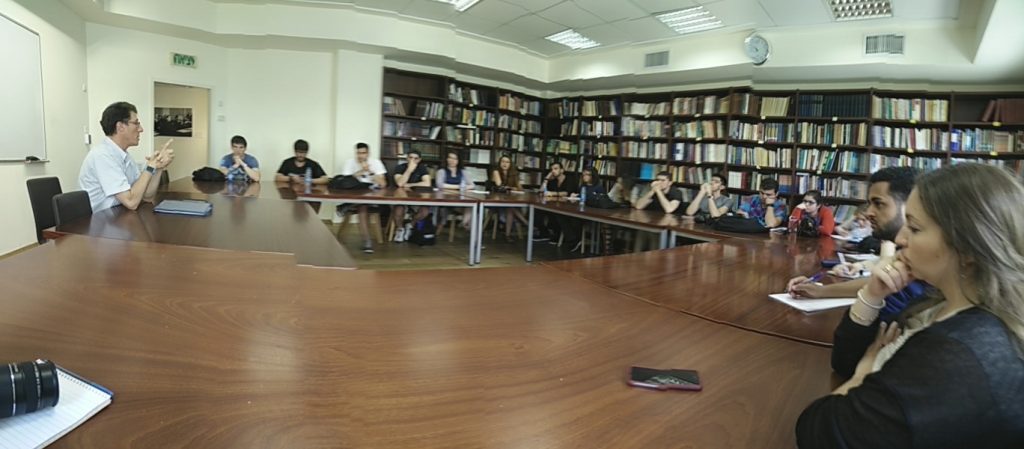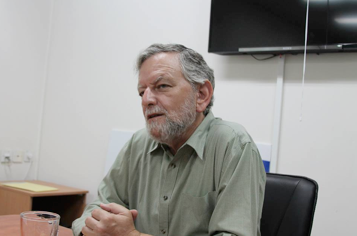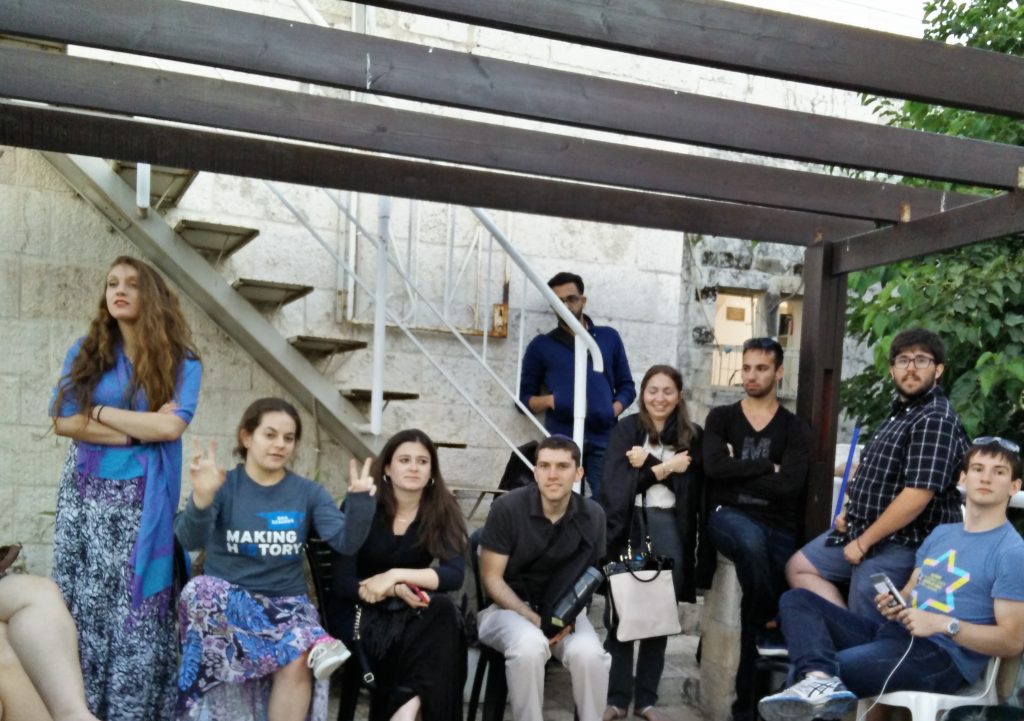The third full day of the Israel trip started with a meeting with Professor Gil Troy, a Shalom Hartman Research Fellow and author of Why I am a Zionist, who discussed how to portray Israel on campuses and how to tell the difference between legitimate criticism of Israel and anti-Semitism. Troy recognized that not all campuses are the same and that the cases of extreme anti-Semitism are quite rare, but that all students must be prepared for changes in their campus environments.
After meeting with Professor Troy, the students went to Shalem Center to meet with Daniel Gordis, who is Vice President of the center. Gordis is a world-renowned scholar and is highly knowledgeable about the Israeli-Arab conflict. Gordis told the students to look at the conflict from different perspectives. He explained that the key way to win the argument on campuses is to understand the conflict from all sides and to have real criticisms of the state, not to just say, “Israel isn’t perfect,” but to actually say how it could be perfected. Additionally, Gordis emphasized reading books on the conflict from different perspectives. For example, he recommended books from both Ari Shavit and Michael Oren, who present different perspectives and opinions on what is going on in Israel.
Above: Students listen to Daniel Gordis speak.
The next stop on the trip was the CAMERA office, where students met with Arnold Roth, the founder of the Malki Foundation, an organization that helps families with disabled children care for their children at home. This amazing organization was founded out of tragedy. Roth’s daughter, Malka Chana Roth (who went by Malki), was one of the victims of the 2001 Sbarro pizza suicide bombing. Roth focused his talk on what it is like to be the parent of a terror victim and how this has affected the rest of his life. Even his vocabulary has changed since the attack. Rather than calling his daughter’s murderer a “suicide bomber,” he uses the term “human bomb,” as he thinks that the word “suicide” should not be used when the intention was not for the bomber to kill himself, but to kill others.
Left: Arnold Roth tells his story.
After Roth, students heard from Khaled Abu Toameh, a Israeli-Arab journalist who began his career in the Palestine Liberation Organization (PLO) newspaper that was run by Yasser Arafat, and now writes for several news organizations including the Jerusalem Post. Toameh discussed his life as a journalist and how he is able to get into areas that would otherwise be off-limits to Israelis. Toameh also focused on how unlikely a Palestinian compromise is.
The final speaker of the day was Avi Mayer, The Jewish Agency’s Spokesperson for International Media. Mayer discussed different social media, and particularly Twitter-oriented, strategies for the students to use in Israel advocacy. Mayer emphasized the ability of one person to change the view of Israel through social media and how important it is that the pro-Israel community maintains a singular message when it comes to Israel. Mayer started the hashtag #IsraelLoves in response to the trending Twitter tag #IsraelHates. While his hashtag never ended up trending on Twitter, it was still widely seen, and hundreds of people responded, making it a success.
To end the day, the students went to the Old City of Jerusalem to have dinner and a discussion about campus activism. At the meeting, the students were able to help each other by telling the other students about what has failed and succeeded on their campuses. This conversation allowed the students to connect with each other about their activism.




